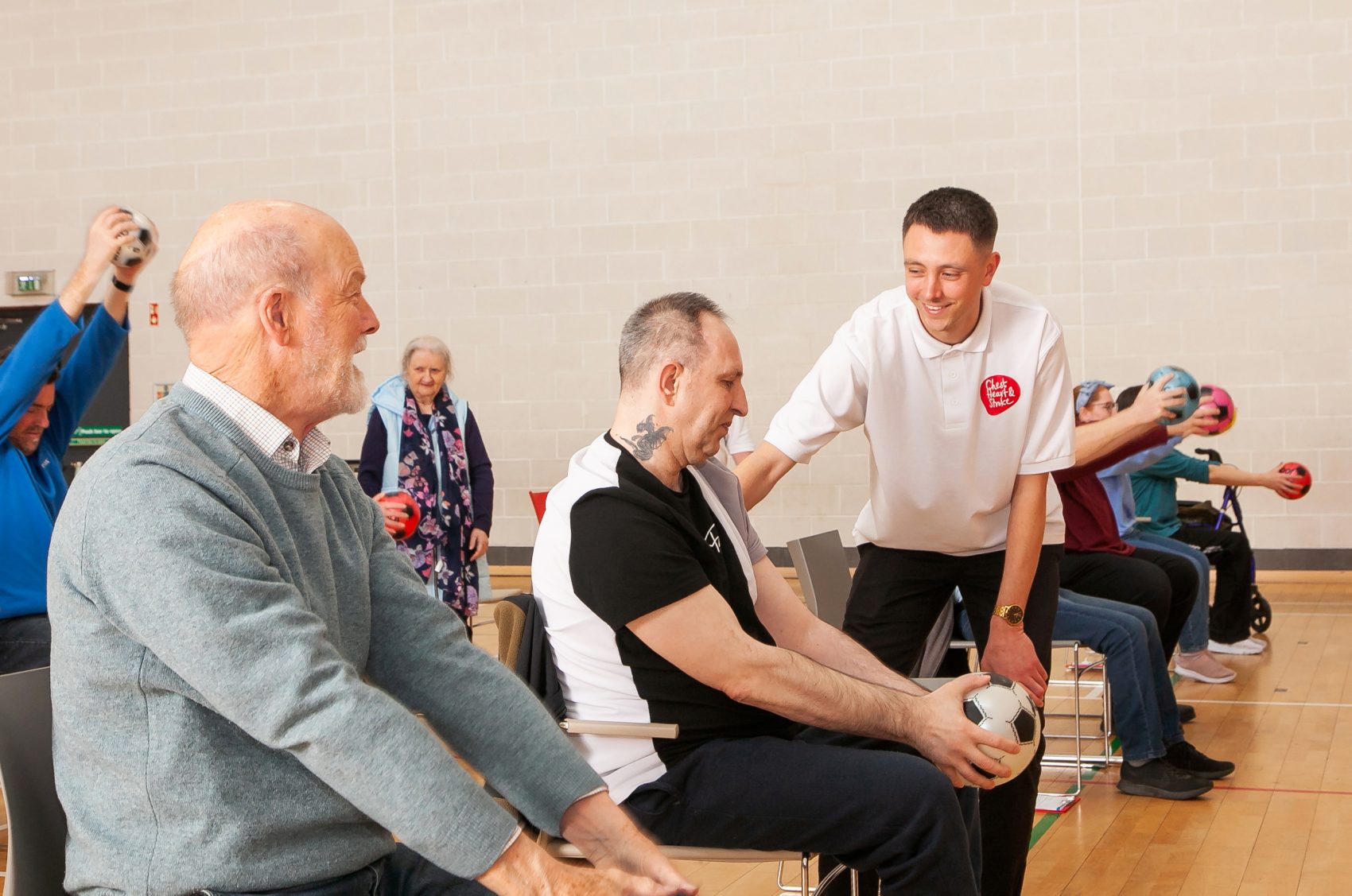Having a stroke can be devastating, not just for the person affected but for family members as well.
Life goes on after a stroke - but without the necessary information, skills or confidence it can be hard for people to manage their condition. It can be difficult to make well–informed decisions about their health, treatment or even daily life - let alone make plans for the future. People living with stroke need information, care and support from others.
If you are affected by stroke, we have an experienced and compassionate team who can help you with the skills, knowledge and the right services which will make a real difference to your health, wellbeing and overall recovery.
In your stroke journey there are ups and downs, you have to slowly build confidence. Don’t be closed off. Speak to people about how you feel – together you will come up with a solution.
Nabendu, Stroke Survivor
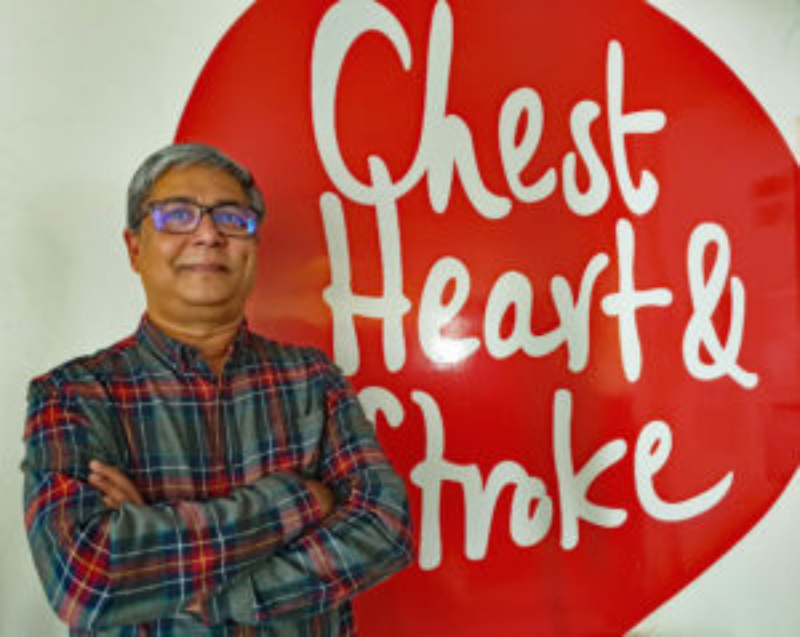
-
A stroke happens when the blood supply to part of the brain is interrupted. Most strokes occur when a blood clot blocks one of the arteries which carry blood to the brain – this is called an ‘ischaemic stroke’. Another type of stroke is a ‘haemorrhagic stroke’ which means there has been a bleed on the brain. If brain cells lose their supply of oxygen from the blood, they can be damaged or die.
The symptoms of a stroke depend on the part of the brain affected and the extent of the damage. No two strokes are the same and recovery is different from person to person.
The symptoms of a stroke usually come on suddenly and are described by the letters F.A.S.T
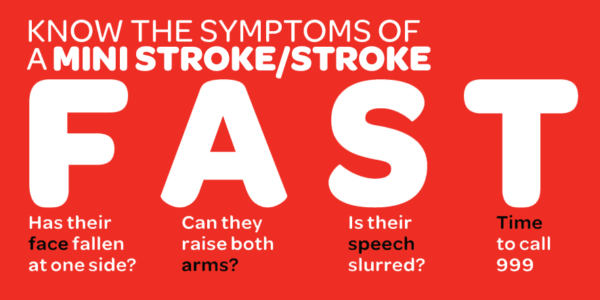
- Facial weakness: Can the person smile? Has his/her mouth or eye drooped?
- Arm weakness: Can the person raise both arms? Is one arm weak?
- Speech problems: Can the person speak clearly and understand what you say?
- Time to call 999: If the person has failed any of these tests call 999 immediately
Other symptoms include:
- Problems with balance and co-ordination
- Difficulty swallowing
- Sudden blurred vision or loss of sight
- Severe headache
The ‘T’ in F.A.S.T is very important as the longer the affected part of the brain is without blood, the greater the residual damage will be.
For more information download our What is a Stroke? Leaflet.
Life After Stroke
Every stroke is different. Each person affected by it will have different problems and different needs. The lasting effects depend on where in the brain the stroke happens and the nature of the stroke. Common effects following a stroke include:
- Weakness or lack of movement in leg and/or arm
- Problems with balance and co–ordination
- Trouble swallowing
- Problems with vision
- Problems thinking or remembering
- Trouble speaking, understanding, reading or writing
- Shoulder or arm pain or stiffness
- Feeling worried or sad
- Problems controlling your feelings
- Incontinence
In the first few days after a stroke, care concentrates on assessment of your condition and preventing complications. Once a stroke has been diagnosed, trained staff will assess the effects and work out a plan of care for you.
When they are ready, most people are keen to get home from hospital, and this is a very important motivator for recovery. But it can also be daunting for the person who has had the stroke, as well as carers and family.
No single piece of advice applies to everybody. Many people need to make adjustments after a stroke. After returning home, it is important that you receive the necessary support from your family, friends and healthcare professionals. Many people who have had a stroke and their carers have told us that this can be a time of worry, loneliness and many of them say they feel abandoned when services come to an end.
At Northern Ireland Chest, Heart & Stroke, we believe that there is no need for anyone to be lonely or alone after a stroke. We have a range of specialised local services and a team of experienced and compassionate people ready to help.
For more information, download our Life after Stroke leaflet.
-
A transient ischaemic attack (TIA) or ‘mini–stroke’ is a set of symptoms similar to those of a stroke. It can last from a few minutes to a few hours but the symptoms disappear within 24 hours.
In a TIA, a blood vessel in the brain is temporarily blocked by a clot, but the body breaks down the clot before any lasting damage is done to the brain.
But a clot is a clot. It may be temporary but it should not be ignored because it is a serious warning that something is wrong with the blood flow to your brain and a full stroke could happen in the future.
If you have a mini stroke (TIA), you have an increased chance of having a full stroke. 1 in 10 people who have a mini stroke have a full stroke within a week.
The symptoms of a mini stroke/TIA are the same as the symptoms of a full stroke, though they disappear within 24 hours. As the symptoms don’t last, it is common for the person experiencing them to dismiss them, and think nothing of them.
Other symptoms of a mini stroke may include:
- Blurred or reduced vision
- Difficulty understanding
- Dizziness or loss of balance
- Difficulty swallowing
- Severe headache
- Nausea or vomiting
If you experience the symptoms of a stroke or mini stroke (TIA), seek urgent medical help. When you are having the symptoms it is impossible to know if you are having a mini stroke or a full stroke. Don’t wait to see if they go away, call 999 immediately.
Sometimes people don’t recognise the signs of a TIA at the time, and only realise later on that something wasn’t quite right. If you experienced symptoms recently but didn’t see a doctor, you should make an urgent appointment to see your GP. Your GP will also be able to refer you to a TIA clinic.
See below for more information:
What is a Transient Ischaemic Attack?
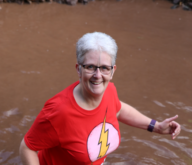
“At the time I didn’t know the symptoms were serious as they came and went quite quickly. But now I want people to know that you have get medical help when you have TIA symptoms as they are a warning sign you could have a full stroke.”
-
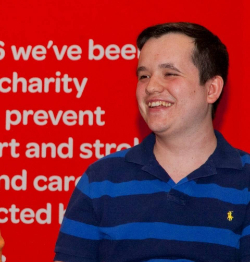
"Even the ambulance crew didn’t really believe that I had suffered a stroke. That’s the first message I’d like to get across – people my age have strokes too."
Stroke is often considered an illness of old age but many young people are affected too. It is estimated that a quarter of all strokes occur in people under the age of 65.
Every stroke is different and each stroke survivor will have different problems and different needs. Medically the effects of stroke are the same no matter what age you are.
The way in which you might be affected depends on where in the brain the stroke happens and the nature of the stroke.
If you are older the effects are more likely to be complicated by other age–related illnesses. A younger person may also be more physically fit before the stroke and this will help in recovery.
However, coming to terms with having had a stroke can be particularly difficult for younger people, who may not have any history of illness and certainly did not expect something so sudden and serious to happen.
For more information download our leaflet or see our Stroke in Younger Adults Support page .
Stroke can also occur in childhood. Read about Harley, who was only 2 years old when she had a stroke.
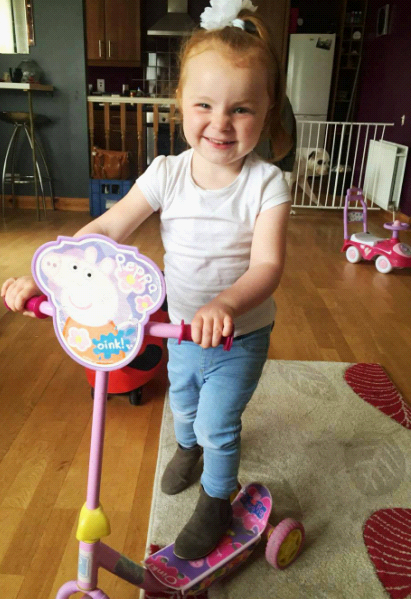
For information on the clinical guidelines for stroke care in childhood and guidelines for parents of children with stroke, go to www.rcpch.ac.uk/stroke-guideline.
Download our Stroke Factsheet:
-
Stroke FactsheetDownload pdf
Please note that the information on this website is not a substitute for the advice your doctors or other health care professionals may give you based on their knowledge of your condition.
